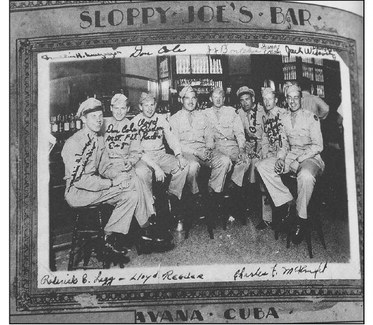A band of brothers:


Eldest Schwieso brother recalls family legacy of military service
Any time Duaine Schwieso looks out of his window he can see it — a large set...


Eldest Schwieso brother recalls family legacy of military service
Any time Duaine Schwieso looks out of his window he can see it — a large set...